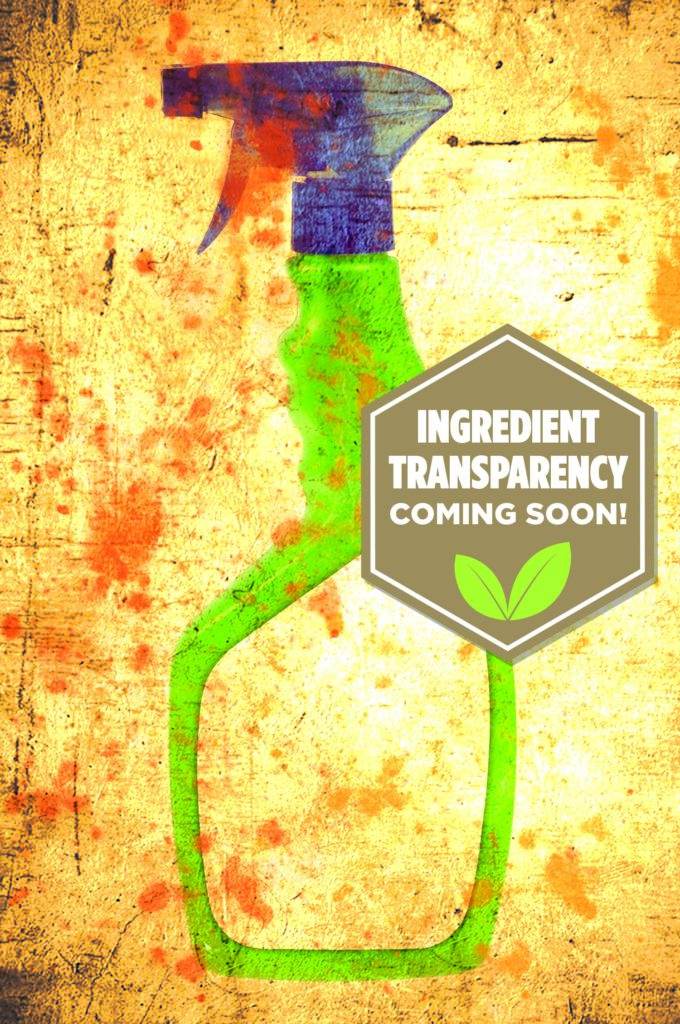Cleaning Product Companies
Must Disclose Ingredients
BY ALYSON DUTCH
You probably wouldn’t be shocked to learn that home pollution is a thing; but did you know that the air quality inside your home is often 70% worse than that outside? A new study shows that women using propellant spray cleaners in their home run a health risk equal to that of smoking a pack of cigarettes a day. Kids are eating colorfully poisonous dishwasher soap pods. The irony of what’s on the front label versus the back warning labels is stunning. Recently I made a list of conventional cleaning product front and back label claims. The disparities were compelling: a venerable laundry detergent known for use with delicate fabrics claims “Gentle on skin” on the front, yet the back warning label says: “If direct skin contact, flush with water and seek medical attention.” For the rest of the world who may not be as forensic in their label reading, the Cleaning Product Right to Know Act is a game changer.
By 2020, for the first time, cleaning product companies will be required to disclose ingredients on pack and provide details on their website by 2023. Senator Ricardo Lara proposed the bill and Governor Jerry Brown signed it in October.

While this law currently applies only to California, historic measures like this eventually have national ramifications because no company—no matter how large—wishes to spend extra money to create separate labels for just one state. One of the biggest proponents of the law was Kelly Vlahakis-Hanks, who runs Earth Friendly Products, the largest maker of green laundry detergent. She compared the new directive to the Food Channel by saying: “The food industry has been focused on transparency for many years, and the cleaning products industry is finally catching up to the same standards. Our skin is our largest organ, absorbing toxic chemicals more quickly than what we put in our mouth, therefore what we clean with impacts our health. Many dangerous chemicals have been furtively put in cleaning products and until now were concealed as ‘trade secrets.’ Everyone has a right to know about the products they bring into their home. Many of the chemicals used in traditional cleaning products have been linked to asthma, allergies, cancer, and other serious health effects. People are demanding the information they need to protect their health.””
State Senator Ricardo Lara was inspired to bring the legislation after hearing stories from his mother, a domestic worker. “After a day scrubbing toilets my mother would be dizzy and sick but she never knew if it was because of the product she was using,” Senator Lara says. “Many people who are cleaning our schools, our offices, and our homes are telling their families stories about being sick at work.”
How the Cleaning Product Right to Know Act Affects Consumers and Workers
» Shoppers can compare two products side by side in the store to see which chemicals they contain and decide which one is right for them, just as they do with food and cosmetics.
» Parents of children with asthma and allergies will be able to see if a product has ingredients that could make those conditions worse.
» Domestic workers and janitors exposed to cleaning products at work all day will be able to advocate for safer alternatives.
» Cancer survivors who are told to avoid certain chemicals will know if they are present in cleaning products.
Alyson Dutch is a consumer packaged goods marketing expert based in Malibu.